August 30, 2019
 by Lesley Vos / August 30, 2019
by Lesley Vos / August 30, 2019

It's official: customers choose sustainable products from sustainable brands.
This means that "brands that can strategically connect sustainability to actual behavior are in a good place to capitalize on increased consumer expectation and demand." To grip the trend, more companies today struggle to redo their business paradigm accordingly.
A brand's green marketing strategies and turning to sustainable packaging last well into this process. And yet, for a brand to be described as sustainable and maintain a sustainable competitive advantage, it needs to adopt a variety of practices.
The concept of sustainability comes with three pillars: economic, social, and environmental (also known as the three Ps: profit, people, and planet). Its focus is to meet the needs of today without blowing future generations' chances to meet their needs tomorrow.
By sustainability in business, we mean two categories: its effect on the environment and its effect on society.
For a business to become sustainable, it needs to focus on long-term strategies for making a positive impact on those categories. Sustainability is about framing business decisions in terms of years or even decades and considering many more factors than just a financial benefit.
Sustainability is about setting reasonable business goals and working towards them right along.
The goals can be as follows:
And when a business achieves their set goals – cutting emissions by 5%, for example – they can call themselves "sustainable."
In addition to saving the planet and attracting new customers with social responsibility, sustainability can drive business by far. According to McKinsey, brands with higher ESG ratings (Environmental + Social + Governance metrics) are more financially successful and have more public support.
Also, sustainability in business motivates a brand's employees to align with its mission, goals, and values. They are ready to work towards improving a company's reputation and meeting customers' expectations.
Within this framework, the benefits of sustainability in business include:
| Saving money. Eco-friendly techs and lower waste in energy/time can bring significant savings. |
| Attracting investors. A reputation of an earth-friendly business is persuasive enough for savvy investors and new customers to come. |
| Retaining employees. A brand supporting sustainable practices can attract qualified employees who'll perform better and be more satisfied with their workplaces, saving resources for the process of recruitment. |
| Creating new jobs. The focus on sustainability can introduce new job titles such as CVO (Customer Value Officer), wind energy engineers, passive solar building designers, and more. |
Sustainable companies are those proposing and acting for environmental and social concerns.
To create a more sustainable strategy, business needs to assess a particular problem and define clear objectives. Only if understanding what sustainability means for its industry and clients, a business can establish its big mission and craft a long-term strategy based on its values.
Answers to questions such as…
| How much waste our organization creates |
| What impact it has on the local community |
| How we outreach to customers |
| How our product helps a certain audience |
...can help to develop a sustainable business strategy.
Lastly, to address sustainability in business, a company needs to beware of two critical gaps such as "I know but do nothing" and "I need sustainability for competitive advantage."
According to a 2017 report by MIT, only 25% of companies incorporated sustainability in their business model though 90% of executives found it to be significant. What’s more, 24% of companies see sustainability as an area of competitive advantage, missing the fact that compliance goes first.
To stand out with sustainability, a business should address both gaps and understand all the risks of getting them wrong.
The companies listed below are solid examples of how sustainability can be ingrained in every aspect of a business. They implement sustainable strategies to promote core values and conscious consumption to the world.

This LA-based brand makes dresses out of deadstock fabrics, the stuff manufacturers usually leave behind on sewing tables and, therefore, waste.
Launched back in 2013, the company promotes sustainability everywhere they can: create limited edition pieces, reduce the usage of fabric, deliver their product in wooden boxes rather than polyurethane bags, and advocate minimalism to support the overall image of the brand.
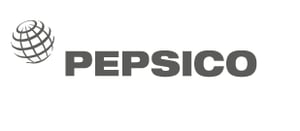
PepsiCo presents its sustainability goals and annual reports since 2005. They are about three aspects: human sustainability (the brand promotes healthy food and drinks), talent sustainability (the brand works to attract top talents and create a diverse company culture), and environmental sustainability (the brand works on minimizing their footprint and operates in a manner to protect resources).
By 2025, they plan to reduce added sugar and fat in products, design 100% of their packaging to be recyclable, and reduce the waste they generate by 50%. Also, PepsiCo continues to develop a diverse workforce and advance respect for human rights.

This distributor of wine and spirits demonstrates sustainability by using climate-sensitive and water-intensive ingredients for their products. For Brown-Forman, it's a great way to build consumer relationships and endure their brand.
Aimed at protecting natural resources for future generations, they partner with other businesses for sustainability initiatives such as concentrating on reused or recycled materials and organizing joint actions to solve climate change problems. As well as other responsible brands, they care about employee relations and diversity too.
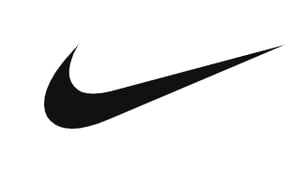 This sports brand integrates sustainable design across its products. Back in 2013, they created the Making app, revealing the sustainability index of their materials to the public, inspiring other manufacturers to create a more sustainable design, too.
This sports brand integrates sustainable design across its products. Back in 2013, they created the Making app, revealing the sustainability index of their materials to the public, inspiring other manufacturers to create a more sustainable design, too.
Nike understands its environmental impact, minimizing the brand's footprint. They work with like-minded suppliers, take part in climate change summits, promote a circular economy, and build a global community of responsible people for creating a more sustainable future.
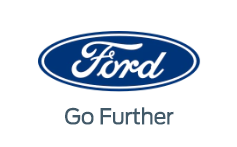 In recent years, the brand has increased its usage of renewable materials in vehicles. They've reduced their global waste by 5.5% in 2018 and got 14.5% reduction in water use since 2010. The 100% renewable energy for all manufacturing plants globally by 2035 is in its plans.
In recent years, the brand has increased its usage of renewable materials in vehicles. They've reduced their global waste by 5.5% in 2018 and got 14.5% reduction in water use since 2010. The 100% renewable energy for all manufacturing plants globally by 2035 is in its plans.
Ford Motor Company invests millions in electrified vehicles, promotes volunteering, and supports minority, women, and veteran-owned businesses, celebrating diversity and enhancing people's lives the way they can.

The company launched its Environmental Business Initiatives back in 2007, encouraging customers to deploy their capital to sustainable activities. In other words, they finance opportunities that create positive change to the planet.
Bank of America works on reducing their environmental impact (the 2020 goals include reducing GHG emissions by 50%, water use - by 45%, and waste - by 35%) and has strong governance of all their initiatives. Also, they have an ambitious program for employees, encouraging them to act as environmental advocates everywhere they can.
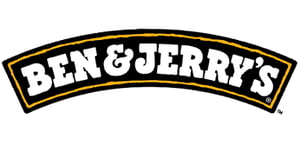 The brand has a long history of business development and fighting for environmental sustainability. Since 2002, they launched carbon offsets programs, ran global warming advocacy campaigns, and invested in efficient manufacturing and supply chains to lower their footprint.
The brand has a long history of business development and fighting for environmental sustainability. Since 2002, they launched carbon offsets programs, ran global warming advocacy campaigns, and invested in efficient manufacturing and supply chains to lower their footprint.
All of their products are made of non-GMO ingredients. Ben & Jerry’s works on reducing methane emissions from farms, and their plan is to get to 100% clean energy at their U.S. sites by 2020.
Their programs are all about sustainability as well. In 2013, the brand got the Good Dairy Award for their Caring Dairy program that helped farms adopt sustainable practices for raising cows without growth hormones. Their foundation engages employees in social change work and supports communities for environmental justice.
 This water technology provider does everything to operate their business in a way to ensure its safety and quality but minimize its environmental footprint. They even have senior executives responsible for Xylem's sustainability performance.
This water technology provider does everything to operate their business in a way to ensure its safety and quality but minimize its environmental footprint. They even have senior executives responsible for Xylem's sustainability performance.
They work on optimizing global water management, preventing water pollution, and reducing waste to landfill. The achieved goals include a 16% reduction in water use and 18% reduction in net GHG emissions. Xylem won Forbes, Fortune, and Global Water Awards for being among the top just and changing the world companies. Their sustainalytics score is currently 78.
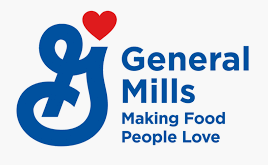 The focus areas of this business include climate change, the sustainability of water use, and improving ecosystems in their supply chain. They support the humane treatment of animals (they've even developed Animal welfare policy) and work on improving the social and economic impact of their products.
The focus areas of this business include climate change, the sustainability of water use, and improving ecosystems in their supply chain. They support the humane treatment of animals (they've even developed Animal welfare policy) and work on improving the social and economic impact of their products.
In 2018, 85% of General Mills ingredients were sustainably sourced, and their goal is to reach 100% by 2020. They invest millions in soil health initiatives, support human rights across their value chain, and do their best to update their global responsibility issues regularly.
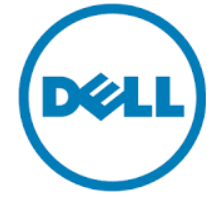 The brand focuses on transforming lives with technology, cultivating inclusion, and advancing sustainability. They integrate alternative materials in products and packaging, those designing for end-of-life and recyclability, work on improvements in energy efficiency, and plan to reduce the energy intensity of their products by 80% in 2020.
The brand focuses on transforming lives with technology, cultivating inclusion, and advancing sustainability. They integrate alternative materials in products and packaging, those designing for end-of-life and recyclability, work on improvements in energy efficiency, and plan to reduce the energy intensity of their products by 80% in 2020.
Dell works on reducing greenhouse gas emissions, recycling (or recovering) used electronics properly, sourcing sustainable materials, and partnering with responsible suppliers only. Its 2030 vision reinforces that sustainability in business starts with setting business goals that are SMART, long-term, and clearly defined.
A focus on sustainability appears to be a must for a business to succeed today. For those willing to become more sustainable in business, focus on shifting away from consumer-based economy to conserver-based one. Let the world know about your big mission and think of sustainable practices that might align with it.
The emerging paradigms and associated business models such as sharing economy, circular economy, voluntary transparency, and giving instead of receiving are a good place to start.
As Felip Vidiella from Dow Chemical once mentioned in their presentation:
"Sustainability requires making every decision with the future in mind. It is about our relationship with the world around us — creating economic prosperity and social value while contributing to the preservation of the planet."
If you're interested in adopting a sustainability program in your workspace, discover the top-rated sustainability management software to help you get started. It's never too late to go green.
Lesley is a content creator with 9+ years of experience in web writing. Currently blogging at several educational blogs, she's also contributing to many publications on business, marketing, and lifestyle.
We all are proud of becoming greener these days. The world population grows, the global...
 by Lesley Vos
by Lesley Vos
Utilizing resources in such a way that future generations can still use them is the underlying...
 by Sagar Joshi
by Sagar Joshi
Science shows that humans are leeching the world’s resources.
 by Nicholas Van Antwerp
by Nicholas Van Antwerp
We all are proud of becoming greener these days. The world population grows, the global...
 by Lesley Vos
by Lesley Vos
Utilizing resources in such a way that future generations can still use them is the underlying...
 by Sagar Joshi
by Sagar Joshi


